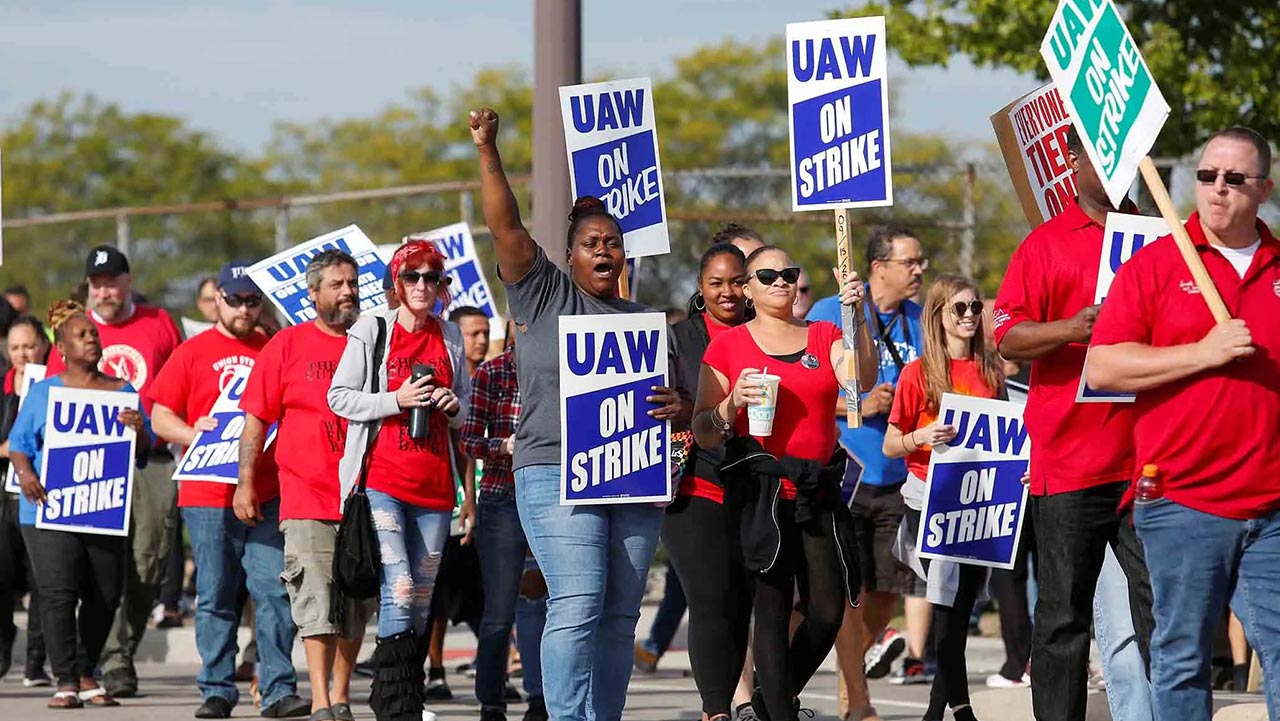It's also the first time the union has chosen to directly target specific plants in order to "cause confusion," in the words of UAW President Shawn Fain, at the headquarters of the three automakers.
"For the first time in our history, we will be striking all three of the Big Three," Fain said.
In a surreal twist, the strike begins as the Detroit Auto Show opens to the public.
On Strike at the Big Three. Stand Up Strike.
— UAW (@UAW) September 15, 2023
Support the strikers. Grab a support graphic for your timeline.#StandUpUAW #OnStrike #StandUpStrike pic.twitter.com/GGIpAeTVzd
At this point, there's no way of predicting how long this strike will last or how many plants will be affected before it's all said and done. For now, the walkout is being limited to a few select plants, but Fain has indicated that the number of striking workers and plants involved will escalate as negotiations drag on.
Fain appeared at Ford's Michigan Assembly Plant early Friday to address UAW members and join the picket line. Speaking to reporters, Fain addressed a claim by Stellantis that the union had not made serious counteroffers. Fain said the companies have had the UAW's demands for as long as five weeks. "We made counter-offers tonight," Fain told reporters, saying the union had to file unfair labor practice claims to get two companies to the table. "It's their fault. They waited till the last minute," he said. "This is on them."
These are the plants that will be targeted first:
- GM Wentzville Assembly in Missouri. It builds the Chevy Colorado/GMC Canyon pickups and Express/Savana vans
- Stellantis Toledo Assembly Complex in Ohio. It builds Jeep Gladiator, Wrangler and Wrangler 4xe
- Ford Michigan Assembly Plant, final assembly and paint only, stamping plant excluded. That facility builds Ford Bronco and Ranger
The strikes at those locations involve a combined 12,700 workers.
In short, the UAW is demanding that the automakers raise wages, change the payroll system, reduce hours, increase pensions and reinstate retiree health benefits. In addition, the UAW believes it should be allowed to strike over plant closings.
The UAW is negotiating simultaneously with Ford, General Motors and Stellantis (the parent company of American Chrysler, Dodge, Jeep and Ram). A prolonged strike threatens to spread economic turmoil as suppliers and other industries that depend on automakers and their workers see demand dry up. The standoff has become a political issue, with President Joe Biden, who faces re-election next year, making a high-profile call for a deal.
A full strike would hurt each affected automaker's earnings by about $400 million to $500 million per week of lost production, Deutsche Bank estimates. Some of those losses could be recouped by ramping up production schedules after a strike, but that possibility fades as a strike stretches into weeks or months.
Source: Autoblog

